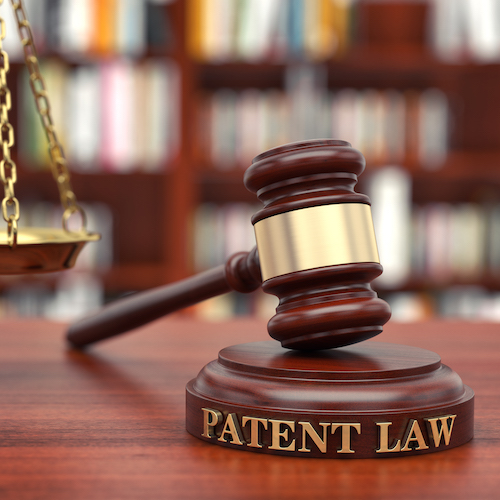FCC Restores Net Neutrality Regime Amid Criticism
“The internet was able to grow and thrive under the ‘light-touch’ Title I regulations, becoming the staple of American life it is today… [N]ow is not the time to be wrapping red tape around our country’s most valuable innovators.” – Taxpayers Protection Alliance
On Thursday, April 25, the Federal Communications Commission (FCC) held an open meeting during which the agency’s commissioners voted 3-2 to restore net neutrality rules that reclassifies Internet broadband providers as common carriers, dramatically increasing regulatory oversight on such companies operating in the United States. This partisan victory for the Democratic Party membership of the FCC is raising opposition from taxpayer advocacy groups and Republican lawmakers who believe that the return of net neutrality rules will do much to harm America’s leadership in broadband Internet.
FCC Calls Title II Reclassification an ‘Overwhelmingly Popular and Court-Approved Standard’
In 2015, the FCC under Chairman Tom Wheeler first established net neutrality rules that reclassified Internet broadband under Title II of the Communications Act of 1934, giving federal regulators the ability to target broadband providers for supposed discrimination in content access and pricing for Internet access. These rules were repealed by the Trump Administration in 2017, a move that was largely upheld by the U.S. Court of Appeals for the D.C. Circuit in Mozilla Corp. v. FCC (2019). Although the federal rulemaking was rescinded, 34 states had introduced net neutrality legislation in 2018. A return to FCC oversight of broadband providers was presaged by the Biden Administration’s ultimately unsuccessful nomination of Gigi Sohn, a chief FCC staffer to Tom Wheeler who was active in the agency’s net neutrality efforts, to serve as an FCC Commissioner.
Thursday’s FCC vote comes almost a month after FCC Chairwoman Jessica Rosenworcel announced that the agency would hold a vote on restoring the previous net neutrality regime, which the agency called an “overwhelmingly popular and court-approved standard.” A fact sheet issued by the FCC one day prior to the vote called Title II reclassification necessary to ensure that the FCC has the authority to compel broadband providers to address service outages, reduce national security threats to our nation’s telecommunications infrastructure, and prevent the censorship of any type of online speech. While acknowledging that this authority doesn’t provide oversight of Big Tech companies not within the scope of the Communications Act, the FCC’s fact sheet states that “net neutrality would ensure that ‘Big Tech’ can’t just cut a deal with a broadband provider to favor its products over upstart competitors.”
Critics Point to Lack of Supposed Harms, Impropriety Under West Virginia v. EPA
While the return to net neutrality has received broad support from the Democratic membership of the FCC, Republican commissioners at the agency have been outspoken in their dissent from the majority. A statement issued by Commissioner Brendan Carr challenged the propriety of the agency’s return to net neutrality under the U.S. Supreme Court’s 2022 decision in West Virginia v. Environmental Protection Agency. Under West Virginia, Carr argued that authority from Congress to regulate broadband providers must be explicit in the FCC’s governing statute. Carr also contended that the FCC’s line-item veto of several provisions critical to the legislative design of Title II was analogous to the kind of unrestrained use of forbearance that led the Supreme Court to strike down the Biden Administration’s college loan forgiveness program in last year’s Biden v. Nebraska ruling.
A coalition of nearly 40 Republican lawmakers from both houses of Congress, including House Energy and Commerce Committee Chair Cathy McMorris Rodgers (R-WA) and Senate Commerce Committee Ranking Member Ted Cruz (R-TX), sent a letter to the FCC arguing that Internet access offered by broadband providers are properly characterized as “interactive computer services.” Under 47 U.S.C. § 223(e)(6), such interactive computer services are not to be construed as common carriers or telecommunications carriers, the Republican lawmakers contend. They add that broadband Internet cannot qualify as a telecommunications, defined in 47 U.S.C. § 153 as transmissions “without change in the form or content of the information as sent and received,” as providers must reconfigure packets of data to present content in a user-readable form.
Non-partisan taxpayer advocacy institute Taxpayers Protection Alliance (TPA) also issued a statement denouncing the FCC’s vote to restore the Title II classification for Internet broadband. Instead of the supposed harms predicted when the Trump Administration rescinded net neutrality, TPA cites data showing that median fixed download speeds for Americans have increased five-fold since 2017, a period of time that also saw a 10 percent reduction in the price of Internet services according to the Bureau of Labor Services’ Consumer Price Index. “The internet was able to grow and thrive under the ‘light-touch’ Title I regulations, becoming the staple of American life it is today,” TPA argued, adding that “now is not the time to be wrapping red tape around our country’s most valuable innovators.”
Image Source: Deposit Photos
Author: mindscanner
Image ID: 39035953
Steve Brachmann
Steve Brachmann is a graduate of the University at Buffalo School of Law, having earned his Juris Doctor in May 2022 and served as the President of the Intellectual Property […see more]







